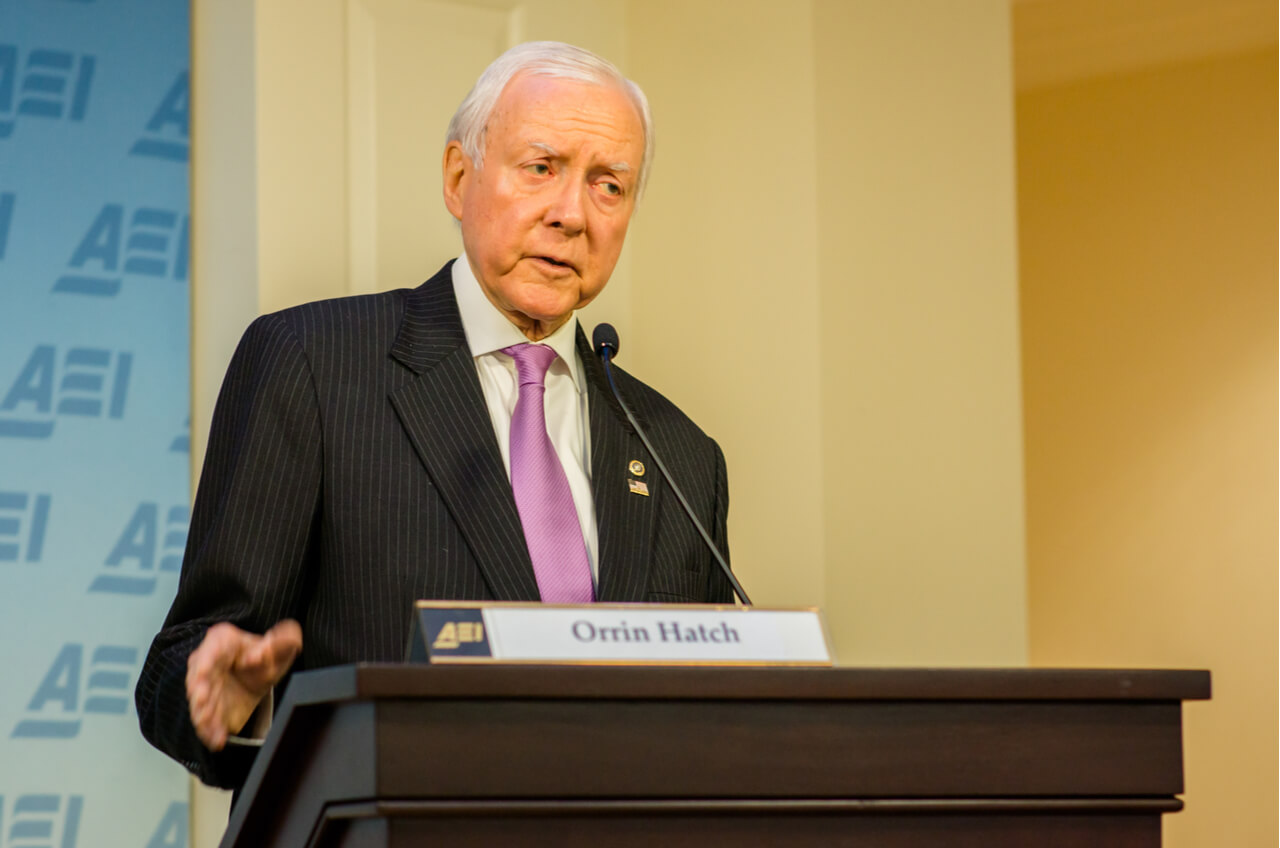PASPA Author Orrin Hatch To Introduce Federal Sports Betting Bill

One of the original authors of the 1992 federal law banning sports betting that was struck down by the US Supreme Court this week plans to introduce new sports gambling legislation to Congress.
Utah Republican Senator Orrin Hatch, one of the four original authors of the Professional and Amateur Sports Protection Act (PASPA), will introduce a bill to Congress aimed at establishing new standards for sports betting in the US.
Sen. Hatch says the legislation is an effort to protect consumers and states that have no plans to legalize sports betting, all while upholding the integrity of sports itself:
“The problems posed by sports betting are much the same as they were 25 years ago. But the rapid rise of the Internet means that sports betting across state lines is now just a click away. We cannot allow this practice to proliferate amid uneven enforcement and a patchwork race to the regulatory bottom. At stake here is the very integrity of sports. That’s why I plan to introduce legislation in the coming weeks to help protect honesty and principle in the athletic arena. I invite stakehold
ers and my colleagues on both sides of the aisle to join me in addressing this important issue.”
Opening the door to legal sports gambling
Monday’s Supreme Court decision upheld a 2014 New Jersey law allowing sports betting in casinos and racetracks there. At the same time, it struck down PASPA, the law that prohibited sports gambling everywhere except Nevada, and limited sports betting in Delaware, Montana, and Oregon.
It was a 6-3 vote that now opens the door to legalized sports gambling, not just in New Jersey, but across the country.
In the Supreme Court decision, Justice Samuel Alito wrote that PASPA infringed upon state sovereignty laid out in the Constitution. He said states should have a choice when it comes to sports gambling. However, he also opened the door for further action from the federal government:
“The legalization of sports gambling requires an important policy choice, but the choice is not ours to make. Congress can regulate sports gambling directly, but if it elects not to do so, each state is free to act on its own.”
Hatch, the Senate President Pro Tempore, who is said to be retiring from Congress following the current session, said he plans to:
“Seize this opportunity to establish fundamental standards for sports betting that will uphold the integrity of the game, protect consumers, safeguard against underage and problem gambling, and help states who choose not to permit sports betting within their borders.”
The intent of PASPA
Sen. Hatch says PASPA was created to protect the integrity of athletics from corruption, including gamblers fixing games. He points to the fact 62 senators cosponsored the bill, and that it passed the Senate 88 to 5, as a clear indication of widespread support for at least the intention of the law.
In the meantime, New Jersey racetracks and casinos are expected to roll out legal and regulated sports betting within the next few weeks.
After the Supreme Court agreed to hear New Jersey’s case against PASPA, seven other states also passed laws that would make sports betting legal if the court ruled in its favor.
The following states are also expected to have sports betting up and running within the next few months:
Several other states have also been considering similar legislation. The Supreme Court decision may now give these states the push they need to enact sports betting legislation, even before Hatch and the rest of Congress can act. The states include:
- California
- Connecticut
- Illinois
- Indiana
- Kansas
- Kentucky
- Maryland
- Massachusetts
- Minnesota
- Michigan
- Missouri
- New York
- Oklahoma
- Rhode Island
- South Carolina
Sports betting and the NFL
New Jersey’s law allowing sports betting in casinos and racetracks originally landed in the courts because of efforts by major sports leagues in the US to have it struck down.
The National Football League stopped short of voicing support for Sen. Hatch’s proposed legislation. However, the NFL’s initial reaction to Monday’s Supreme Court decision was a statement calling for at least some action from Congress:
“The NFL’s long-standing and unwavering commitment to protecting the integrity of our game remains absolute. Congress has long-recognized the potential harms posed by sports betting to the integrity of sporting contests and the public confidence in these events. Given that history, we intend to call on Congress again, this time to enact a core regulatory framework for legalized sports betting. We also will work closely with our clubs to ensure that any state efforts that move forward in the meantime protect our fans and the integrity of the game.”
Photo by stock_photo_world / Shutterstock.com




